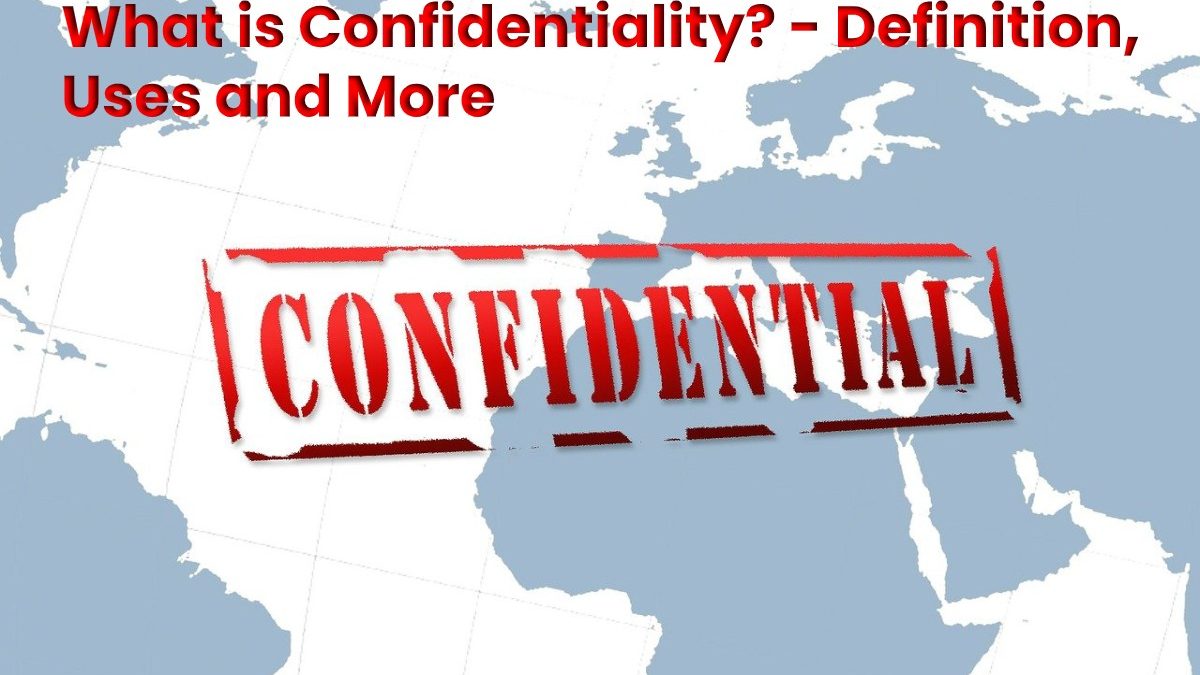Table of Contents
Confidentiality Definition
Confidentiality is the trait or quality of those events or actions that are confidential, secret or subject to a process of discretion by those involved. When it comes to information, confidentiality is the property that these documents have, which makes them accessible only to certain people, who generally refer to “authorized personnel.”
- This considers that the practice one of the cornerstones of information security that defines by the International Organization for Standardization (ISO) in standard ISO / IEC 27002 under the above provisions.
- This concept, within its current meaning, ranges from the necessary security in the computer field, to the ethical requirements of medicine and psychology. So, there is been a creation of various methods, according to the raise of needs in each area. In addition to those corresponding to the people involved.
- In computer security, confidentiality focuses on the protection of personal information held by a user who is exchanging information with other users, against third parties.
The system that constitutes the internet is known to be insecure. So, it implements more security filters every day, to prevent the consumer from being a victim of cybercrimes.
Also Read: What is Bluetooth? – Definition, Uses, Types and More
What are the uses of Confidentiality?
The confidentiality agreement will protect the information considered sensitive or confidential of your business against the possible intrusion of third parties. For example, founding partners, employees, teams, collaborators, investors, industrial partners, etc. learn through our guide on how to use this agreement, in addition to the types of existing contracts and the clauses that compose it.
What is a confidentiality agreement?
The confidentiality agreement or « NDA « («non-disclosure agreement») is a contract between at least two entities to share confidential material or knowledge for specific purposes, but restricting its public use.
The “NDA” contract suitable for users who need to protect confidential information is guaranteed for your company. When making an exchange of information with another company or person who will work directly with such information.
In this way, we ensure that the use off the information is for the agreed purposes and excluding others. Besides, criminal clauses will establish that safeguard the interests of the business in case of misuse.
When and how to use the confidentiality agreement?
Use this confidentiality agreement when: Go to exchange confidential information with other people (companies or individuals).
To inform the other party of the importance and confidentiality of the information you provide.
You need to impose requirements on the use of your confidential information.
What protection does a confidentiality agreement contain?
The creation of a confidentiality agreement is for the protection of the rights enshrined by the law of intellectual property. And also this model contract will contain:
The parties: Entity, company, or individual signing the agreement.
A definition of confidentiality: Making clear what is meant by privacy and what is not.
Conditional Clauses:
Restrictions on the use of information: Who can know the information and who cannot.
Exceptions: The use of the information will be valid if:
- The receiver knew these matters before.
- The receiver has obtained that information from other sources.
- The information is public.
Duration: Date of commencement and termination of the confidentiality agreement.
Criminal clause and penalties: Penalty for inappropriate use.
However, remember that the design of a confidentiality agreement is not to protect intellectual or industrial property rights strictly. It would be with a trademark or patent.
Also Read: What is Access Control? – Definition, Uses and More

